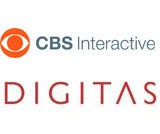 Google yesterday brought together executives from Digitas and CBS Interactive to discuss how buyers and sellers are working together to evolve programmatic ad buying.
Google yesterday brought together executives from Digitas and CBS Interactive to discuss how buyers and sellers are working together to evolve programmatic ad buying.
Joel Aranson, VP and director at Digitas, and David Chiang, VP of monetization with CBS Interactive, made clear during the “Think with Google” hangout on Google+ that automated media trading has come a long way in the last three to four years — and they expect big changes in 2013.
“I feel like a lot of publishers and advertisers have gotten a bad taste in their mouths from the initial use of programmatic premium,” Aranson said. “I think that the technology has improved and both sides have spoken to each other more and its gotten to a point where it is now mutually beneficial.”
Below are some key points from the Q&A, which was dubbed, “Programmatic in the Future.”
Programmatic Maturity
While the technology for offering programmatic buying has been available in some form for a few years, many, including CBS Interactive shut off that option due to channel conflicts.
Now, Chiang said, CBSi has happily opened this channel and become more strategic with it. It’s now working with Digitas and Vivaki Audience On Demand. “Now we can structure relationships with the direct sales side with real time bids and direct sales to meet everyone’s needs.
CBS is working with Digitas now to create a more holistic standpoint.
The Programmatic Future
“This is the new way, the new medium for online digital advertising moving forward. It provides the type of metrics, attribution needed for direct response and performance campaigns. It also meets the needs of the brand, both for advertiser and publisher.”
Chiang points out that CBSi is working in a world where it can monetize effectively, creating a happier and more “fruitful coexistence.”
From the buyer perspective, Digitas’ Aranson said he has seen publishers change their tune over the last few months.
“We from the buy side have always been wanting this and it’s hard to get things done when the sell side isn’t on the same page… It will start with display, then video and mobile. And we’ll figure out different ways to include new ad units as they come up.”
Buyers: More Transparency Please
Digitas wants to see more transparent access to publisher inventory, especially from big networks like CBSi and other premium sites.
“Across these big sites, each client will want to buy and target in a different manner. It would be great to have a high level run of network type source but we also want to get more granular as we start from the top and work our way down,” said Aranson.
Eventually Aranson would like to get access all the way down to the smallest nuances and buy small as well as big. “Buyers don’t just want to buy run of site and call that premium. As a buyer we define it differently than a seller. People are calling some brands premium like CBSi, ESPN, but every expression on their site is not premium.”
That is a big discontent, Aranson said.
“There is premium inventory and then there are premium sites. For a buyer it is pre-sold, direct to publisher inventory that is guarantees and is highly desirable location. Anything that is guaranteed and anything that is unsold is not premium.”
Chiang agreed with the point. “The site, the audience, guaranteed, not guaranteed, everyone has their own definition.”
Aranson continued, “I think that we are looking for the ability to go after specific parts of the site and even though it is unsold, we will pay a higher cost than the just the traditional run of site because we can tackle the granular data.”
He said once rates have been negotiated a buyer can activate the inventory at any given time – the biggest benefit from a demand standpoint.
Chiang said it comes down to revenue. “We have been evaluating more programmatic options but at the end of the day this is a yield question. If we understand the entire opportunity there is going to be a placement, guaranteed or not, we will look at this holistically.”











